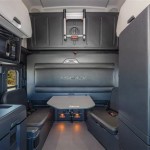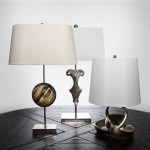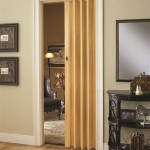Commercial Interior Designer: Crafting Spaces for Success
Commercial interior design encompasses the planning, design, and execution of interior spaces for diverse commercial projects. From offices and retail stores to restaurants and hotels, commercial interior designers play a pivotal role in creating functional, aesthetically pleasing, and brand-aligned environments. Their expertise spans a wide range of areas, including space planning, furniture selection, lighting design, color palettes, and material choices. The goal of a commercial interior designer is to translate the client's vision into a tangible space that fosters productivity, inspires customers, and strengthens the brand identity.
Key Responsibilities of a Commercial Interior Designer
Commercial interior designers wear many hats throughout the project lifecycle. Their responsibilities include:
- Client Consultation and Needs Assessment: Understanding the client's vision, budget, and functional requirements is paramount. This involves in-depth discussions about the project scope, target audience, brand identity, and desired atmosphere.
- Space Planning and Layout: Optimizing the layout of the space to maximize functionality and flow is crucial. This involves creating floor plans, considering furniture placement, and ensuring adequate circulation and accessibility.
- Design Concept Development: Developing a design concept that aligns with the client's vision and brand identity is essential. This includes selecting color palettes, materials, finishes, and lighting solutions that create the desired aesthetic and ambiance.
- Furniture and Fixture Selection: Selecting furniture, lighting fixtures, and other interior elements that are functional, durable, and aesthetically appealing is a crucial task.
- Construction Documentation and Specifications: Creating detailed drawings, specifications, and construction documents to guide the construction team is essential for successful project execution.
- Project Management and Coordination: Overseeing the project from conception to completion, coordinating with contractors, suppliers, and other stakeholders is a key responsibility.
The Value of a Commercial Interior Designer
Engaging a commercial interior designer offers numerous advantages for businesses, including:
- Enhanced Functionality and Productivity: A well-designed space can significantly improve employee productivity and satisfaction by optimizing work areas, creating comfortable and inspiring environments, and facilitating collaboration.
- Increased Customer Engagement and Brand Identity: Retail spaces, restaurants, and hotels can leverage interior design to create immersive experiences that enhance customer engagement, foster brand loyalty, and increase sales.
- Cost Savings and Efficiency: A thoughtful design approach can optimize space utilization, minimize waste, and ensure long-term durability of materials and furnishings, ultimately leading to cost savings and increased efficiency.
- Improved Safety and Accessibility: Commercial interior designers prioritize safety and accessibility in their designs, ensuring compliance with building codes and regulations, creating safe and inclusive spaces for all users.
Essential Skills and Qualities for Commercial Interior Designers
To excel in this field, commercial interior designers require a diverse set of skills and qualities, including:
- Creative Vision and Design Sense: A strong eye for aesthetics, a keen understanding of color theory, and the ability to translate client visions into compelling design solutions are essential.
- Technical Proficiency: Proficiency in design software like AutoCAD, Revit, and SketchUp for creating detailed drawings, specifications, and project visualizations is crucial.
- Communication and Collaboration Skills: Effective communication with clients, contractors, suppliers, and other stakeholders is essential for seamless project execution.
- Problem-Solving and Decision-Making Abilities: The ability to identify and solve design challenges, manage budgets, and make informed decisions in a timely manner is critical for success.
- Project Management Skills: Strong organizational skills and the ability to manage timelines, budgets, and resources are necessary to keep projects on track and within scope.
Commercial interior design is a dynamic and rewarding field that offers numerous opportunities for skilled professionals to make a tangible impact on businesses and communities. By understanding the key responsibilities, the value they bring, and the essential skills required, aspiring commercial interior designers can embark on a fulfilling career path that combines creativity, technical expertise, and the ability to shape spaces that enhance functionality, inspire people, and strengthen brand identity.

7 Elements Of Commercial Interior Design Ofs Designers

Commercial Interior Design For Project Types Hatch

Why Interior Design For Your Commercial Property Is Worth The Investment Nativa Interiors

20 Top Commercial Interior Design Firms To Watch In 2024 Decorilla

Best Commercial Interior Design Provider In

Commercial Interior Design Tips For A Successful Project 2024 Blog

5 Important Tips For Hiring A Commercial Interior Designer

20 Top Commercial Interior Design Firms To Watch In 2024 Decorilla

Commercial Interior Design Office Company Centaurus Designs

Commercial Interior Design For








